Are you looking for a streamlined way to draft transportation logistics contracts? Writing a clear and concise letter template can save you time and ensure all necessary details are included. The right structure not only enhances professionalism but also helps in avoiding misunderstandings down the road. Let's dive into the essential components that make a strong transportation logistics contract template, so you can navigate your agreements with confidence!
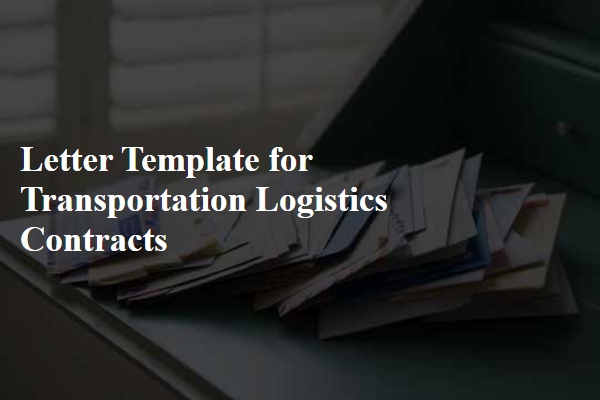
Clarity of Terms and Conditions
Transportation logistics contracts require clarity in terms and conditions to ensure all parties understand their rights and obligations. Essential elements such as delivery timelines, specified in hours or days depending on transport mode like trucks or ships, must be outlined to avoid misunderstandings. Payment terms, including due dates and acceptable payment methods like bank transfers or credit cards, should be explicit to prevent disputes. Liability clauses must specify the extent of responsibility for loss or damage to goods during transit, addressing variations in coverage between full-value and limited liability. Dispute resolution processes, such as arbitration or mediation, foster effective conflict management and should designate an appropriate location, for example, a specific city or arbitration center. Finally, force majeure clauses must articulate circumstances beyond control--like natural disasters or pandemics--that may delay service without penalty.
Liability and Insurance Provisions
Liability in transportation logistics contracts is a critical component to ensure accountability and coverage in case of unforeseen events. Companies engaged in the logistics industry, including third-party logistics providers (3PLs), must clearly outline their liability limits, often expressed as a monetary cap, which can vary widely based on the type of goods transported. Insurance provisions typically include cargo insurance, which protects against loss or damage to goods during transport, often set at minimum coverage amounts defined by industry standards, such as $100,000 per shipment. Additionally, liability waivers can be included, which relieve parties from certain legal responsibilities, but must comply with local regulations, such as the Carmack Amendment in the United States, affecting interstate transport. The use of additional insurance policies, such as general liability or workers' compensation insurance, further mitigates risks associated with accidents or damages during transit. Specific claims procedures and required documentation in case of loss can also be specified, ensuring both parties understand their responsibilities in the event of a claim.
Delivery and Pickup Schedules
Effective delivery and pickup schedules are essential components of transportation logistics contracts, ensuring timely movement of goods. Specific dates and times should be clearly outlined in the agreement, emphasizing pickup points at strategic locations such as distribution centers in Los Angeles or warehouses in Chicago. For instance, morning pickups may be designated between 8 AM and 10 AM, while evening deliveries could occur between 5 PM and 7 PM. Additionally, lead times must be defined, stipulating how many days in advance clients should notify providers for unscheduled pickups or deliveries, usually recommended to be at least 48 hours. Failure to adhere to these schedules could incur penalties, creating incentives for both parties to maintain punctuality. Furthermore, contingencies for delays due to weather conditions, such as snowstorms in the Northeast during winter months, must be included to protect against service disruptions. Finally, the incorporation of real-time tracking technologies enhances transparency, allowing clients to monitor the status of their shipments throughout the logistic process.
Payment Terms and Conditions
The payment terms and conditions for transportation logistics contracts dictate the financial arrangements between service providers and clients, ensuring clarity and compliance. Payment schedules typically outline specific due dates, often ranging from 30 to 90 days post-invoice issuance, with consideration for industry standards, such as the Uniform Commercial Code. Late payment penalties may apply, commonly at a rate of 1.5% monthly on overdue amounts, incentivizing timely settlement. Accepted payment methods include electronic transfers, checks, or credit cards, in adherence to regulatory practices outlined by the International Freight Forwarders Association. Payment terms can vary significantly between domestic and international logistics, with additional customs duties and tariffs needing consideration in cross-border agreements. Clear documentation, including detailed invoices and receipts, is crucial for transparency and efficient financial tracking.
Dispute Resolution Mechanism
Dispute resolution mechanisms play a critical role in transportation logistics contracts, ensuring efficient management of conflicts between parties involved in the logistics process. Common methods include mediation and arbitration, often outlined in Section 9.1 of the contract, specifying that mediation occurs first to foster collaborative problem-solving. Arbitration serves as the subsequent step, where a neutral arbitrator evaluates evidence and delivers a binding decision. Jurisdiction and governing law, such as the Federal Arbitration Act in the United States, delineate the legal framework guiding disputes. Timelines for filing claims, typically ranging from 30 to 90 days from the incident, ensure prompt resolution and diminish prolonged uncertainty. Furthermore, the inclusion of a designated location for hearings, such as a specific city or state, helps simplify procedural logistics. Supporting documentation, including invoices, delivery receipts, and communication records, is vital for substantiating claims during the resolution process.

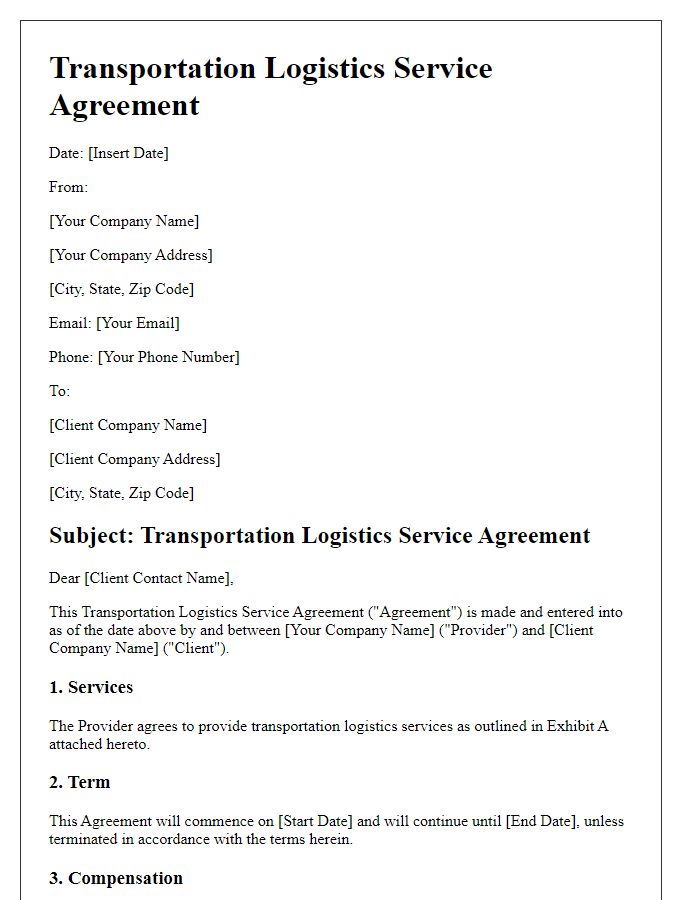
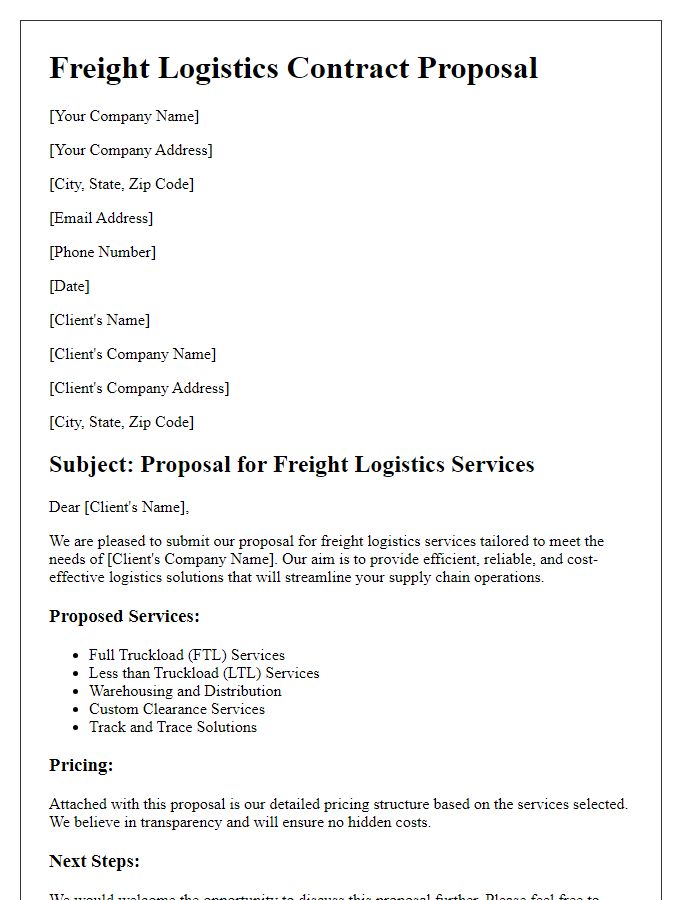
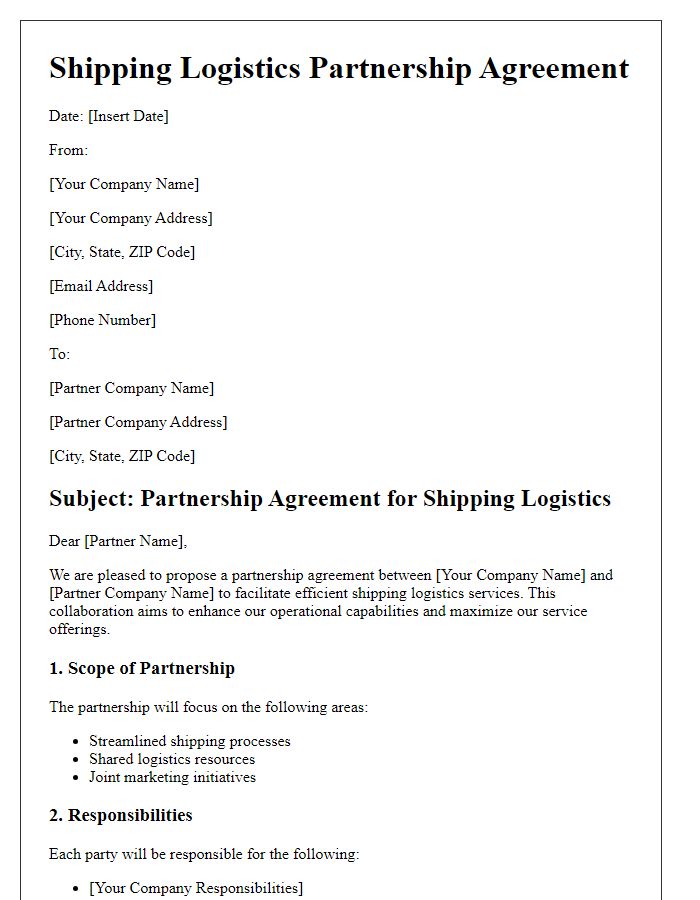
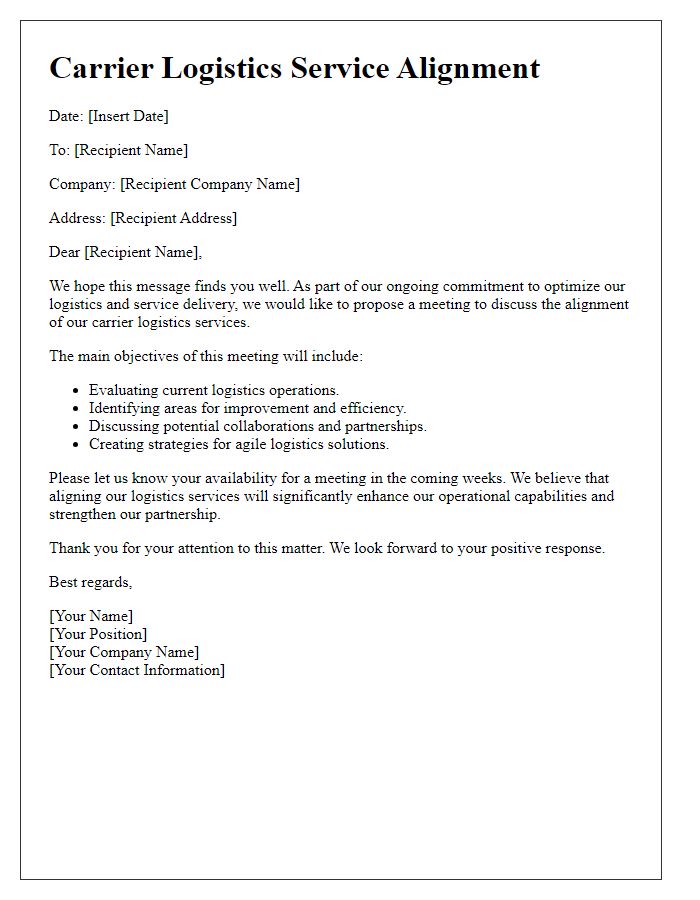
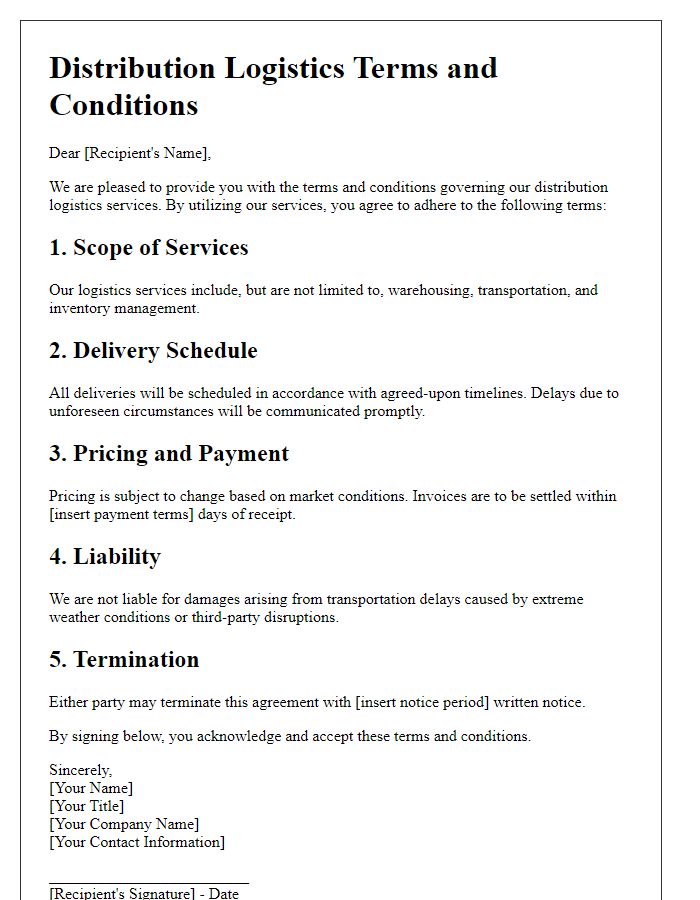
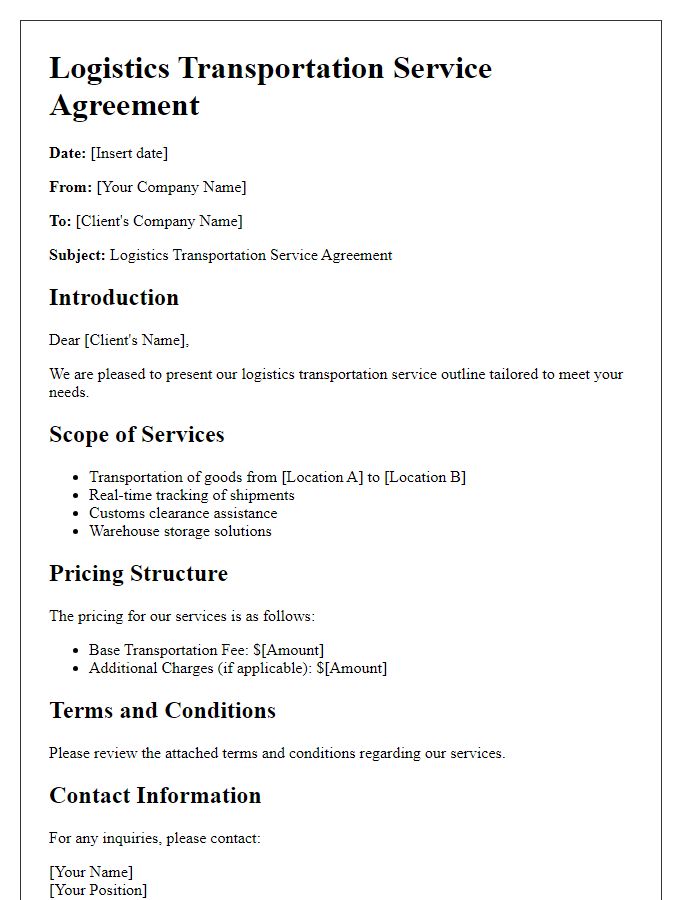
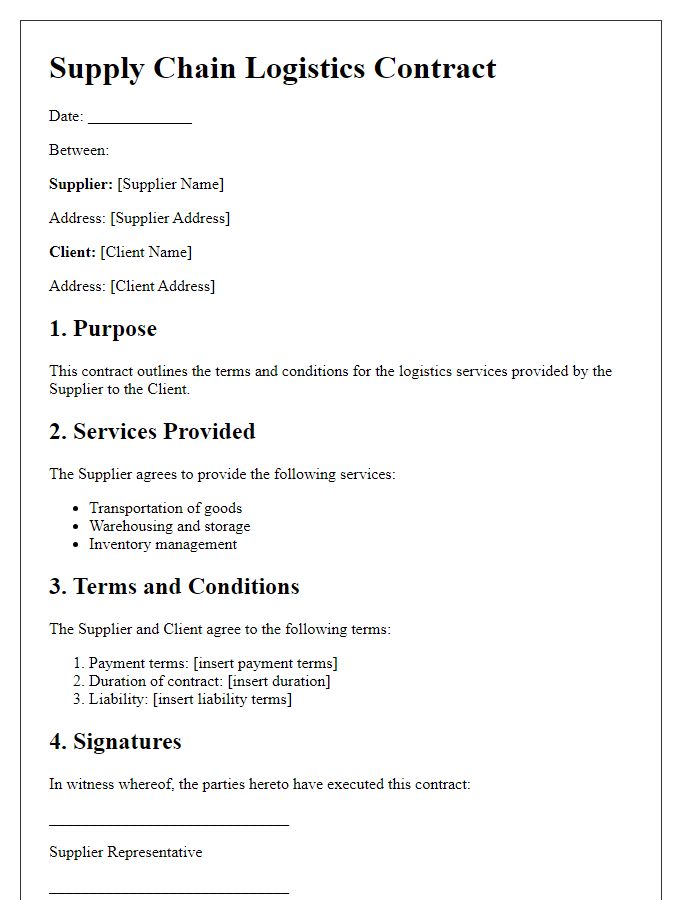
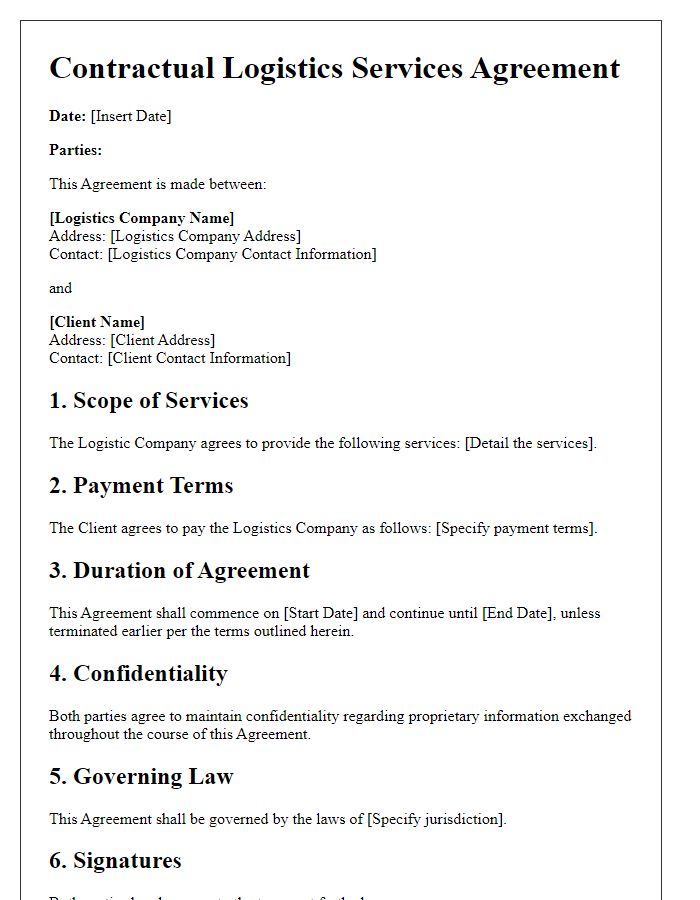
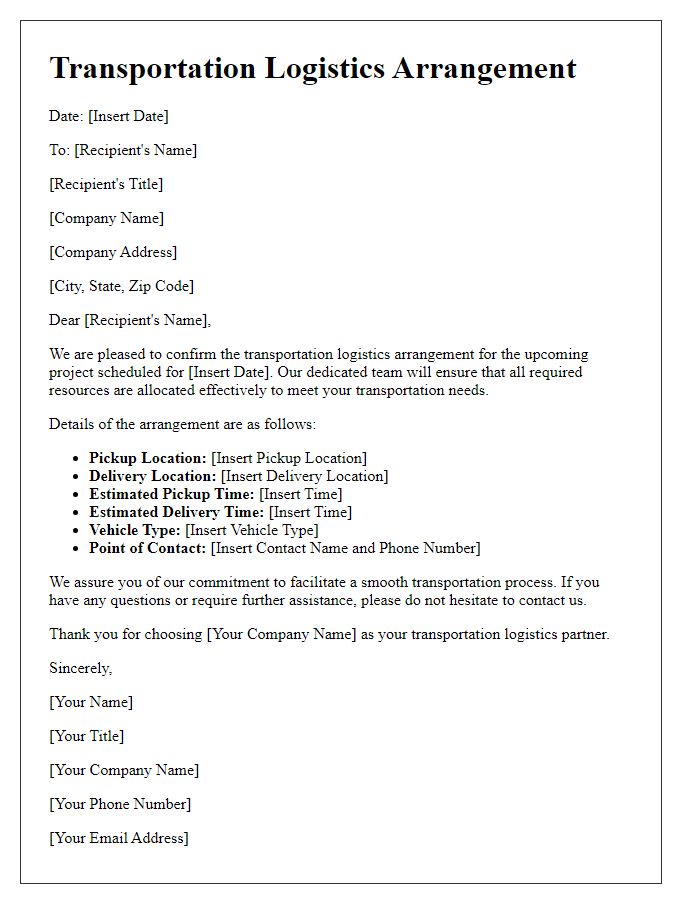
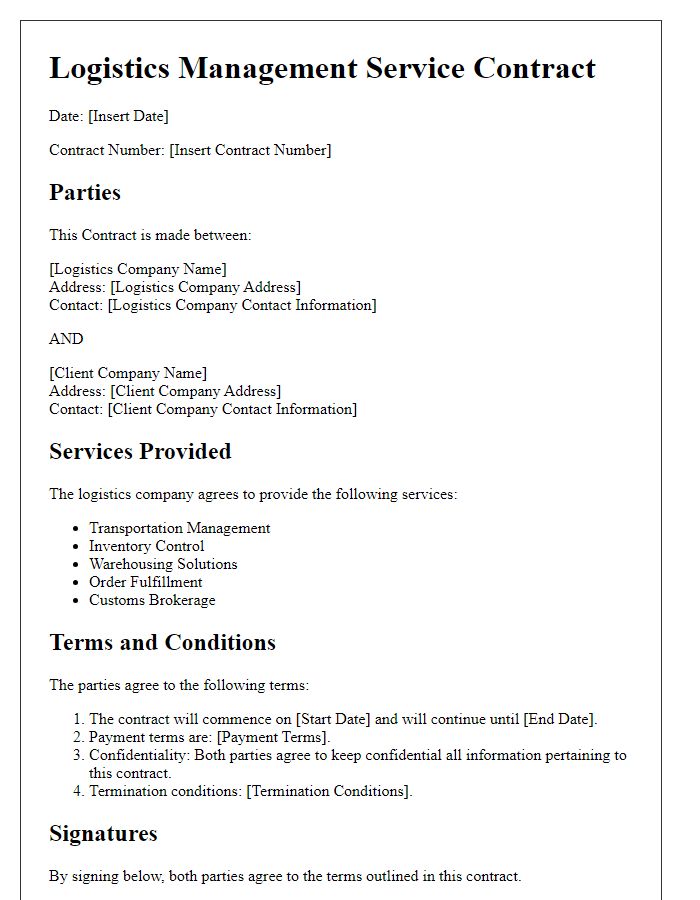


Comments